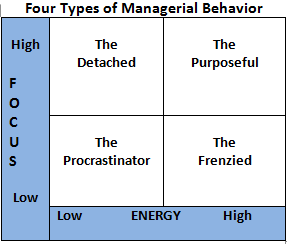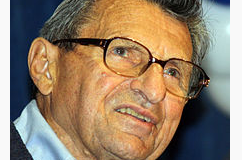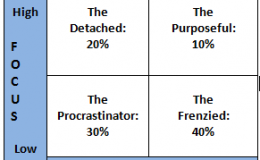Knowing vs Doing: Beware of Business “Busyness”
As a business leader, you know what to do, but are you actually doing it? Knowing vs doing becomes a struggle when day-to-day business requires triage – putting off some priorities in favor of others.
Only about 10 percent of managers work purposefully to complete important tasks, according to a 10-year study of managerial behavior across a variety of industries. The other 90 percent self-sabotage by busily engaging in non-purposeful activities, procrastinating, detaching from their work and needlessly spinning their wheels.
“Busy idleness” affects most people working in companies. And from what I see in the work I do, it becomes more pervasive the larger the organization. While most business leaders and managers have easy access to knowledge and time saving resources, we continue to spend much of our time making the inevitable happen, instead of the few key drivers of business growth. Instead of committing energy and focus to the few activities that can really make a difference, we get busy, just busy…
Beyond routine, day-to-day tasks, most managers fail to seize opportunities to achieve something significant. This problem is nothing new. Stanford University Management Professors Jeffrey Pfeffer, PhD, and Robert Sutton, PhD, studied this dynamic for their book, The Knowing-Doing Gap.
They asked: “Why do so much education and training, management consulting, and business research…produce so little change in what managers and organizations actually do?…Why [does] knowledge of what needs to be done frequently fail to result in action or behavior consistent with that knowledge?”
Energy and Focus
People who exhibit purposeful action possess two critical traits: energy and focus. Energy is characterized by more than effort; it requires involvement in meaningful activities, fueled by both external and internal resources. Purposeful action is self-generated, engaged and self-driven.
If 90 percent of managers fail to act purposefully in their everyday work, what exactly are they doing? Heike Bruch’s and Sumantra Ghoshal’s study, conducted over a 10-year period and published in A Bias for Action, identifies four profiles of managerial behavior, as charted in the grid above.
Do you recognize these managerial styles? Do you work with any managers who are detached? Frenzied? By using a perspective of focus and energy, you can see how this happens. And that’s the first step to changing any behavior: awareness.
If you feel frenzied, take a look at your energy and focus: is it that you have low focus yet high energy? If you’re procrastinating, is your focus dissipated and your energy lagging? What can you do to increase your focus and get some energy going?
What do you think about these managerial behaviors? If you recognize yourself, maybe we should talk? Call me, I’m at Skype: Brenda_Stoltz, 703-728-1336, or contact me here at Ariad Partners.









